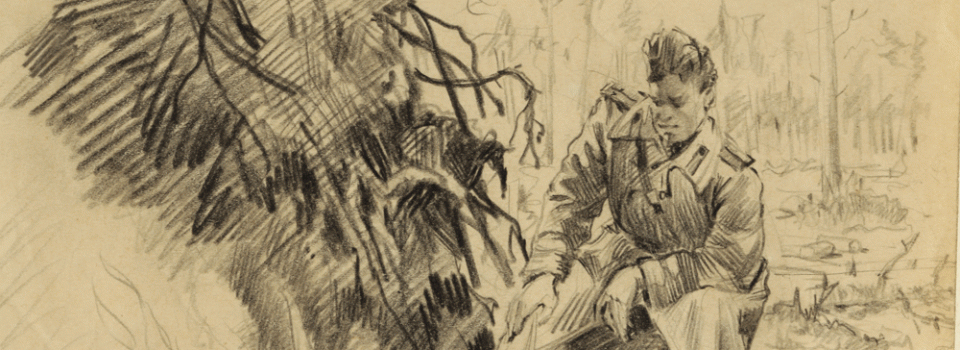“Very interesting and professionally done website. Huge thanks for making this information available!” Graduate of Saint-Petersburg Academy of Arts, Olga Zarutskaya
“Russian Art of the Second World War remains under-researched in the West.
This brilliant website is striving to fill this gap by providing information, visual material and even songs and poems which were inspired by this most damaging war in Russian history.
A brilliant initiative, which will hopefully be developed and will result in many exhibitions and talks on this often overlooked subject.” Dr. Natalia Murray, Visiting Lecturer in the History of 19-20 cc Russian Art, The Courtauld Institute of Art, London.
“This website gives a rare glimpse into the dramatic events of the WWII as it had
been seen and experienced by the contemporaries. It is a fascinating visual testimonial to an unaffected everyday heroism and courage of ordinary Russian people – military and civilians, who fought against Nazism. This new Internet-resource represents an important initiative, promoting unofficial, personal outlook on wartime realities, which still remain a hugely understudied area in the history of Soviet art.”
Natalia Budanova, MA, The Courtauld Institute of Art
“A huge thank you to the creators of this site. Looking at the war through the eyes of the artists who were at the front from the start to the end of the war. In my opinion it’s one of the best ways to convey the message to the present and future generations, to tell them the truth about the Great Patriotic war!”
Mikhail Rudakov, St.Petersburg
“I have been interested in works of artists who went through the World War II for a long time. It puzzles me how these people who went through such hardships remained human and romantic (this fact is obvious – enough to look at the faces of their models of their sketches). Unfortunately, it’s not often that one finds on the Internet a site that lovingly and respectfully tells us about the life and creative work of extraordinary people, the front-line artists. It’s surprising that these artists were born in the same year and went to the war-front as very young people, one can say they went out the school door into the dirty trenches and woes of the war. What willpower these People (with a capital P) had; only strong people with a deep belief in the eternity of life on earth could take pencil in their hands between the battles and draw sketches from people and real events around them. Thank you for the stories about Sergey Babkov & Pavel Afonin, the front-line artists with extraordinary lives. I would like to know more about their artwork, I think they were creative not only during the war times”.Svetlana
“Pavel Afonin is not only a talented and original artist, but judging by his front-line art, he is also a patriot who loved people and life.”Stanislav Latyev, St. Petersburg
“This site directs some much-needed attention towards the subject of Russian Art of the Second
World War – an area which has received precious little attention in UK academe. It is to be congratulated for spreading awareness of two particularly gifted portrait draughtsmen – Pavel Ivanovich Afonin and Sergei Fedorovich Babkov – of whom I had previously never heard and who are of particular interest for being
unofficial Soviet war artists. They provide concrete proof that such artists existed outside of official state control and in their compelling draughtsmanship that there was much more to Russian art of the period that
state-sponsored Socialist Realism. Indeed, Afonin and Babkov can be regarded as worthy of favourable comparison to British contemporaries such as Augustus John and William Orpen, official British war artists in the First World War, and to Eric Kennington and Henry Lamb who performed the same role for the Ministryof Information in the Second World War. I sincerely hope the site continues to flourish and raise greater
awareness in the English speaking world, not only about the unexpected richness of Soviet War Art, but also highlight the immense contribution the Russian people made to the defeat of Nazi Germany, 1941-45.”
Dr Jonathan Black FRSA, Senior Research Fellow in History of Art, Kingston University
